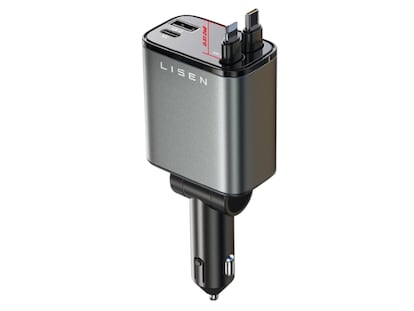Cable sobre las relaciones entre Portugal y Venezuela
El presidente An¨ªbal Cavaco Silva justifica el esfuerzo del Gobierno por mejorar las relaciones entre Lisboa y Caracas
| ID: | 172820 |
| Date: | 2008-10-07 10:54:00 |
| Origin: | 08LISBON2629 |
| Source: | Embassy Lisbon |
| Classification: | SECRET//NOFORN |
| Dunno: | 08LISBON1155 08LISBON2596 |
| Destination: | VZCZCXRO0101 PP RUEHAG RUEHROV DE RUEHLI #2629/01 2811054 ZNY SSSSS ZZH P 071054Z OCT 08 FM AMEMBASSY LISBON TO RUEHC/SECSTATE WASHDC PRIORITY 7064 INFO RUCNMEM/EU MEMBER STATES RUEHCV/AMEMBASSY CARACAS 0087 |
S E C R E T SECTION 01 OF 02 LISBON 002629 NOFORN SIPDIS E.O. 12958: DECL: 10/01/2018 TAGS: PREL, PGOV, PO SUBJECT: (S/NF) PORTUGAL: "WE KNOW CHAVEZ IS A CRAZY MAN BUT..." REF: A. LISBON 1155 (NOTAL) B. LISBON 2596 Classified By: Dana M. Brown, Pol-Econ Officer, Embassy Lisbon Reason 1.4 (b) and (d) 1. (C) Summary: Hugo Chavez visited Portugal on September 27, at the end of a trip that included stops in Cuba, China, Russia, and France. Portugal has warmed towards Venezuela recently and become the EU nation most visited by Chavez over the past year. In addition to protecting the large Portuguese population resident in Venezuela, over the past year the GOP has bolstered bilateral economic ties to include a wide range of "milk for oil," "infrastructure for oil," and "technology for oil" deals. Portuguese Prime Minister Socrates agreed to additional cooperation during Chavez's latest visit and they will meet again in late October at the Ibero-American Summit in El Salvador. End summary. ------------------------------ Trade: On the Prowl for Energy ------------------------------ 2. (SBU) Portugal imports all of its oil and natural gas and, as part of its expanding energy diversification efforts, in May officially signed an "oil for milk" deal with Venezuela involving exchange of Portuguese dairy products for Venezuelan oil. The GOP quickly added other areas of cooperation including port infrastructure, housing, technology, law enforcement, and commercial aviation. Over the last year, the GOP and GOV have signed more than 40 agreements on new areas of cooperation. 3. (U) Some of the Portuguese companies participating in the agreements include Montebravo (construction), Sapropor (foodstuffs), Primor, Cerealis (foodstuffs), Ramirez (canned fish), Cofaco (canned seafood) and Sovena (cooking oils). All the companies began sending shipments in April 2008 prior to PM Socrates' May visit to Venezuela. --------------------- Protecting the People --------------------- 4. (C) Despite the growing economic links, Portuguese officials stress to us that the 600,000 Portuguese residents in Venezuela are the main reason for Portugal's close bilateral relationship with Venezuela. MFA officials have told us, for example, that they believe that it is important to maintain a friendly relationship with Chavez to ensure that the GOV does not persecute the Portuguese in retaliation for bilateral tension. In fact, MFA Americas' Director Helena Coutinho mentioned that Portugal would continue to be friendly to Chavez "unless he declares a war." 5. (C) The GOP has reason to be concerned about the conditions of Portuguese citizens in Venezuela, given the deteriorating security situation there, and many Portuguese shopkeepers recently demanded more direct government protection. In late September, several Portuguese businessmen sent an open letter to PM Socrates, demanding that he raise with Chavez the worsening security situation in Caracas suburbs. This year, 20 Portuguese businessmen were kidnapped, and another ten were murdered (four in September alone). Federico Ludovice, PM Socrates' Diplomatic Advisor on Latin America, told us that Socrates would raise the issue privately with Chavez, but noted that the security situation in Venezuela is generally problematic and the Portuguese were not a particular target. On September 30, Chavez announced the creation of a special interlocutor with the Portuguese community to address security concerns. ----------------------- Political Repercussions ----------------------- 6. (S/NF) While the GOP turned down two of Chavez's requests to visit Lisbon in 2005 because of unhappiness over Venezuela's detention of a Portuguese pilot accused of drug trafficking, Chavez visited Lisbon once in 2006 for a refueling stop and again in November 2007 for a dinner hosted by the Prime Minister. Chavez's September 2008 visit marked the fourth visit between the two leaders this year. When we raise U.S. concerns over policies implemented by the Chavez administration, our interlocutors regularly assure us that they understand our concerns and use the visits to deliver tough messages in private. President Cavaco Silva summed it up when he told Ambassador (ref A) that, "You have to understand our position. We have five hundred thousand (sic) Portuguese there. We know--and I've met him--that he's a LISBON 00002629 002 OF 002 crazy man, but..." 7. (C) Despite the benefits of increased trade with Venezuela to Portugal's ailing economy, the Prime Minister did not win public support after Chavez's July visit to Lisbon, largely due to Chavez's indiscretion. During that visit, Socrates reportedly confided his concerns about the lackluster Portuguese economy to Chavez, who then related the comments on a Venezuelan national broadcast. Chavez claimed Socrates had said the Portuguese economy was "stagnant," a diagnosis far grimmer than the optimistic analyses he shares with domestic audiences. Opposition parties PSD and CDS seized on the news and asked Socrates to clarify his statement before the Parliament but Socrates did not respond. -------------------- The Latest Encounter -------------------- 8. (U) Chavez's September 27 visit to Lisbon once again focused on increasing economic ties. He signed two deals with the Portuguese government and Portuguese companies - one to buy one million Portuguese-made computers and the other to build 50,000 pre-fabricated houses in Venezuela ) the latter worth two billion euros. The Portuguese media gave the visit high profile coverage and ran photos of the two leaders arm in arm. 9. (C) Perhaps in response to the uptick in visits and Portugal's new status as the most visited EU nation, local headlines asked, "What does Chavez want from us?" Chavez told the press he was appreciative that Portugal had "opened the door" to the world for Venezuela. He added that Portugal was able to explain and defend Venezuela to its European partners and dispel the view that Venezuela was a devil and that he was a tyrant. During Chavez's impromptu speech, Chavez highlighted his political agenda, including the "silent revolution of true democracy." In his comments, Socrates strictly focused on the GOP's concern about the well-being of the Portuguese community in Venezuela and on bilateral cooperation with Venezuela on education with the computers. Socrates and Chavez are next slated to meet at the Ibero-American Summit in El Salvador later in October. ---------------------------- Comment: Rising Costs of Oil ---------------------------- 10. (C/NF) The GOP has heard our concerns about Venezuela but defends its energy deals with Chavez by pointing toward US-Venezuela oil trade. On the whole, Portugal's interest in finding new energy suppliers has received a mixed response -- the press and public appear divided between strengthening ties with petroleum producers like Chavez and unease over doing business with these new, controversial partners. Given Socrates' public discomfort over Chavez's airing his private comments on TV, and Chavez's propensity to use the bilateral relationship in ways that embarrass Socrates, the Prime Minister may pause before he agrees to yet another photo op with his "good friend Chavez." End comment. STEPHENSON |
Traducci¨®n autom¨¢tica. Puede que el texto traducido no sea fiel al original
Tu suscripci¨®n se est¨¢ usando en otro dispositivo
?Quieres a?adir otro usuario a tu suscripci¨®n?
Si contin¨²as leyendo en este dispositivo, no se podr¨¢ leer en el otro.
FlechaTu suscripci¨®n se est¨¢ usando en otro dispositivo y solo puedes acceder a EL PA?S desde un dispositivo a la vez.
Si quieres compartir tu cuenta, cambia tu suscripci¨®n a la modalidad Premium, as¨ª podr¨¢s a?adir otro usuario. Cada uno acceder¨¢ con su propia cuenta de email, lo que os permitir¨¢ personalizar vuestra experiencia en EL PA?S.
?Tienes una suscripci¨®n de empresa? Accede aqu¨ª para contratar m¨¢s cuentas.
En el caso de no saber qui¨¦n est¨¢ usando tu cuenta, te recomendamos cambiar tu contrase?a aqu¨ª.
Si decides continuar compartiendo tu cuenta, este mensaje se mostrar¨¢ en tu dispositivo y en el de la otra persona que est¨¢ usando tu cuenta de forma indefinida, afectando a tu experiencia de lectura. Puedes consultar aqu¨ª los t¨¦rminos y condiciones de la suscripci¨®n digital.




























































